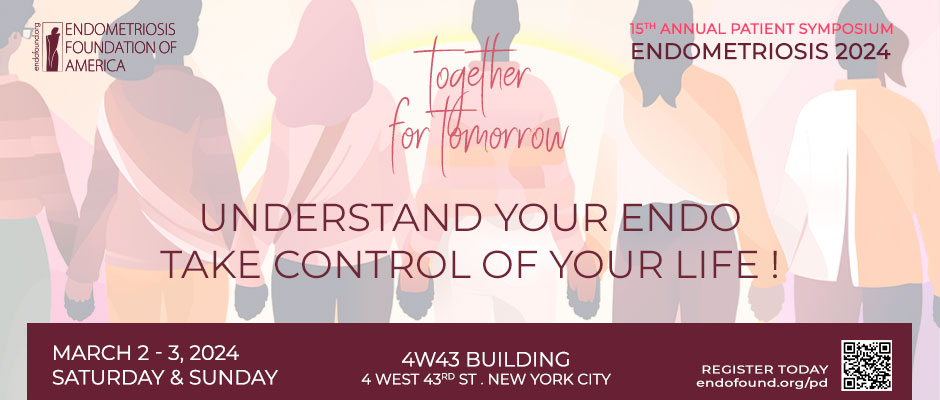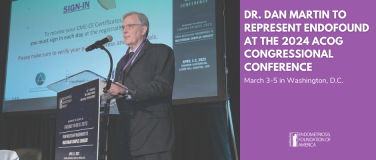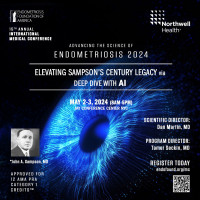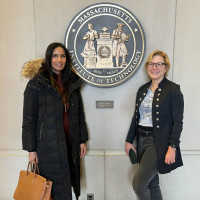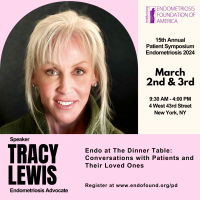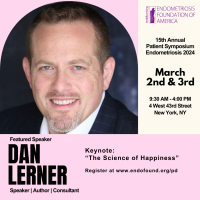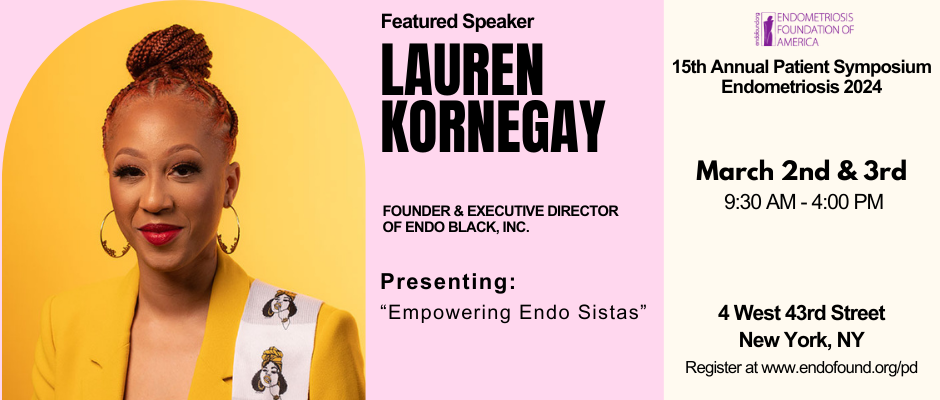
Lauren Kornegay’s late mother left her daughter with profound words of wisdom.
“She always said, ‘If there’s a void, you fill it, and if you want something done, you do it yourself,’” Kornegay said. “That’s what I felt I needed to do, so I did it.”
Kornegay founded Endo Black, based in Oxon Hill, Maryland. She will share her endometriosis story and success in helping others navigate the disease at the 15th Annual Endometriosis Foundation of America Patient Symposium on March 2 and 3 in New York City.
Endo Black began as an Instagram page in 2015 and grew into a nonprofit in 2019 when they launched their website and held their first public event.
“We’ve been thriving ever since,” Kornegay said. “We have a following of 16,500 on Instagram and about 2,000 members in our private Facebook group. We’re here to serve anybody and everybody.”
Kornegay was diagnosed with endometriosis in 2011 at age 22. She doesn’t know how young she was when her symptoms began, but she recalls having severe cramps in high school to the extent that she would often curl into a ball on the floor.
“But I never knew anything was wrong,” she said. “We didn’t talk about cycles in my family or the African American community. My mother was a nurse and used to break up Percocet for me and put it in my applesauce. You just go through it, take medicine, and you’re fine.”
Kornegay realized something was wrong during an incident in college.
“I had just come off my cycle and was about to give a presentation in speech class when I went to the restroom and saw my cycle had started again,” she said. “I had bled all over my dress.”
She went to the emergency room and was referred to a local OBGYN.
“Before doing any tests, she said, ‘I think you have endometriosis,’” Kornegay said. “At the time, I could barely pronounce it.”
The doctor did a pelvic exam and sent her to Johns Hopkins Hospital for surgery, where Kornegay was diagnosed with the disease. This was in March 2011. She doesn’t know what doctors did surgically or what stage she was in. Her mother had passed away three years earlier. Her father was with her during the operation and asked doctors some questions, but Kornegay said they didn’t provide a lot of information.
“I wasn’t very vocal and didn’t advocate for myself,” Kornegay said. “We never had a conversation about what would be next—if I could get pregnant or do this or do that.”
Doctors put Kornegay on birth control because they said they found a cyst, though she said they didn’t expect it would cause any problems. But five months later…
“The cyst had ruptured,” Kornegay said. She had been out running and was struggling, unable to catch her breath, and attributed it to being out of shape. When she got home and showered, she passed out. She would pass out again days later at a friend’s house and the next day while in the bathroom of the hospital emergency room, which led to her second and final surgery.
“It was a success, and every time I see my OBGYN, we have really good conversations,” she said. “I’m more vocal now. I don’t have a clear understanding of everything because I’m not a medical provider, but when I hear verbiage I don’t understand, I’m always asking questions. And I’m always trying to get ahead of the game as far as what I should be doing. I know I get on their nerves, but I’d rather ask questions than be in a situation where I’m passing out like I was in the past.”
Kornegay said when she was going through her surgeries in 2011 and searching for information on endometriosis, she found very little. But she said even as recently as four years ago, one of her Endo Black followers alerted her to a medical website that stated the primary people at risk for endometriosis were white working women.
“Just understanding that narrative is out there is why forming Endo Black was something I felt I needed to do,” she said. “I’m blessed that I’ve been able to manage this disease for myself, which is why for those who are struggling with infertility and surgeries, it’s important for me to try to fill that void for them and assist however I can.”
Just as a wise woman once encouraged her to do.
The 15th Annual EndoFound Patient Symposium will be from 9:30 A.M. to 4:30 P.M. on Saturday, March 2, and from 10 A.M. to 4 P.M. on Sunday, March 3, at the 4W43 Building, 4 West 43rd St. in New York City. For tickets, visit www.endofound.org/patientday.
To learn more about Lauren Kornegay and Endo Black, visit https://www.endoblack.org.



